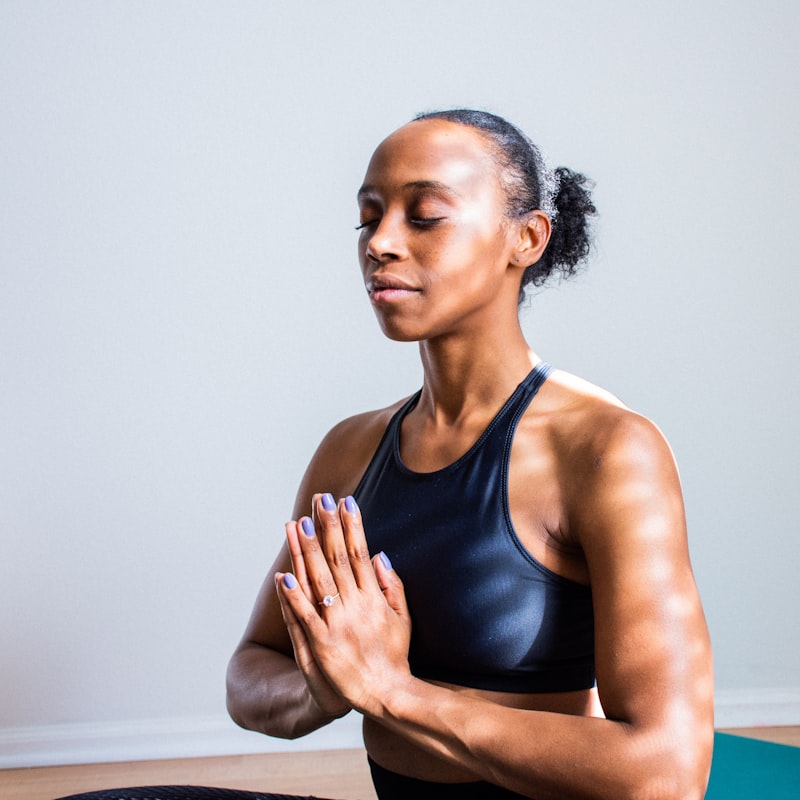Sophrology was developed by a Spanish neuropsychiatrist named Alfonso Caycedo in the 1960s. He was inspired by various relaxation techniques such as yoga, hypnosis, and meditation, and wanted to create a new method that anyone could use regardless of their physical ability or spiritual beliefs. So, he gave birth to sophrology, a unique blend of Eastern and Western practices, designed to soothe the soul and lift the spirits in just about the time it takes to reheat that forgotten cup of coffee.
Caycedo named his new method 'sophrology', which comes from the Greek words 'sos' (harmony), 'phren' (mind), and 'logos' (study or science). The term can be translated as the 'study of the harmony of consciousness'. Isn't that something? Just imagine, all it takes is a fancy Greek word to encapsulate such a profound concept! But what does it mean in practice, you ask? Simply put, sophrology is about helping us find balance and harmony within our minds, all in a jiffy.
Sophrology was initially used as a therapeutic tool to help patients with mental health issues such as anxiety and depression. However, it soon became popular among the general public as a way to reduce stress and improve overall well-being.
Today, sophrology is widely practiced in Europe, particularly in France, Switzerland, and Spain. It is also gaining popularity in other parts of the world, including the United States and Asia. It's like yoga but without the pretzels and Lycra! It's designed to help you squash stress, increase positivity, and boost overall wellbeing. And the best part? It only takes ten to fifteen minutes a day - perfect for us time-starved folks. So, ready to join the sophrology bandwagon?
How does sophrology differ from other relaxation techniques?
Ever tried yoga or meditation and found yourself struggling to keep up? Don’t worry, we've all been there. But before you throw in the towel and declare relaxation techniques are not your cup of tea, hold up! Sophrology might just be your ticket to tranquility.
Unlike other practices that require a significant amount of time commitment, sophrology comes to the rescue of those with jam-packed schedules. It's like a to-go cup of zen! You can practice sophrology anywhere, anytime, without the need for a yoga mat or incense. Heck, you could probably do it on a crowded train or during a quick lunch break!
But that’s not all. Here’s the kicker: Sophrology is a blend of Eastern and Western philosophies. It combines the mindfulness and meditation of the East with the scientific, neurologically-based approaches of the West. Picture this: It’s like having yoga, hypnosis, and relaxation therapy rolled into one, but in a much more time-efficient package. It's like the Swiss Army knife of relaxation techniques!
Can sophrology help with anxiety and depression?
You're probably thinking, "This all sounds great, but can it really help with my anxiety or depression?" The answer is a resounding yes! Sophrology has been shown to significantly reduce symptoms of both anxiety and depression. How so, you ask?
Well, by focusing on the here and now, sophrology aids in quieting the mind and creating a sense of calm. It also uses positive visualization techniques to help redefine negative thought patterns. Imagine being able to turn down the volume on your worries and fears, and instead turn up the volume on positivity and resilience. That's the magic of sophrology!
Remember, it doesn’t require a massive time commitment, either. With just ten to fifteen minutes of practice each day, you could see a significant improvement in your mood and overall well-being. Now, doesn’t that sound like a worthy investment of your time?
What are the benefits of practicing sophrology?
Ever heard of that popular phrase, "The proof is in the pudding"? Well, if sophrology were that pudding, we'd have a delicious, nutritious smorgasbord of benefits to dish out. Before you go turning your nose up at this 'new' relaxation technique, let's take a moment to explore some of the benefits that are up for grabs when you introduce sophrology into your life.
1. A Calmer, More Balanced You
First off, sophrology is like the ultimate zen master, schooling you in the art of relaxation. This isn't about kicking back with a cold one on your day off. Nope, it's about achieving a deeper, more profound calm that permeates your everyday life. Sounds good, doesn't it?
2. Improved Mental Clarity
Sophrology also sharpens your mental acuity. Imagine your mind as a cluttered attic. Sophrology is like a super-efficient cleaning service, removing unnecessary distractions and anxiety-inducing thoughts. The result? A clearer, more focused mind, ready to tackle your daily challenges. You might find that you're able to make decisions more quickly and confidently, too. Who knew?
3. Enhanced Self-Awareness
Wait a minute, you might be thinking, isn't this just getting a bit navel-gazey? Well, not exactly. Sophrology helps you to tap into your feelings, thoughts, and physical sensations, fostering a greater sense of self-awareness. This isn't about becoming self-absorbed; it's about better understanding your own needs and reactions. And that, dear reader, is the secret sauce to improved relationships and better communication.
4. Sleep Like a Baby
Are you tired of counting sheep, sipping chamomile tea, or trying every sleep app on your phone with little to no results? Look no further, my sleep-deprived friend. Regular practice of sophrology can help improve your sleep quality. Zzz...sweet dreams are made of this.
These are just a few of the benefits that sophrology brings to the table. Remember, the beauty of this practice is that it can be tailored to fit your individual needs. So why not give sophrology a try? Who knows, it might just be the missing piece you've been searching for to achieve a healthier, happier you.
So ladies, if you haven't already, start practicing sophrology and say goodbye to restless nights and hello to a more balanced you. In just a few minutes a day, you can lower your stress levels, enhance your well-being, and sleep like a baby. What's not to love about that?






